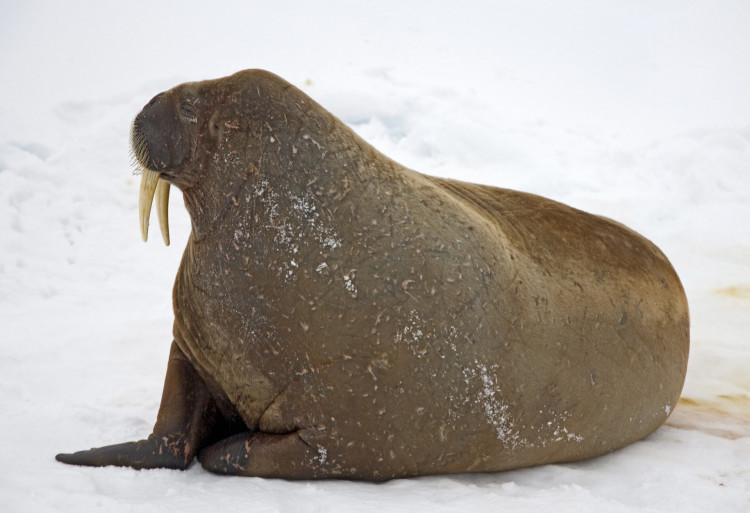Freya the walrus, a renowned attraction in Norway, was euthanized for safety reasons early Sunday morning, according to Norwegian authorities.
The decision was made after Norway's Directorate of Fisheries warned that the animal could be put down because people were approaching it too closely and even threw objects at the walrus.
The present guideline to maintain a safe distance from walruses has been rejected by the public, according to on-site observations over the past week, the directorate said.
"Therefore, the Directorate has found that the potential for harm to humans is considerable and that animal welfare is not being maintained," the directorate added.
Freya, which weighs 1,300-pound, became a cultural figure for sunbathing and feeding on adjacent boats, sometimes sinking them. She won the hearts of the public and the ire of some mariners.
In recent years, Freya has also been spotted in the United Kingdom, the Netherlands, Denmark, and Sweden, in addition to Norway.
With the aid of social media posts that went viral, the walrus gained worldwide celebrity status. During the female walrus's stay on Norway's Oslofjord this summer, throngs of people came to visit her.
The fisheries office said members of the public went to the water's edge to pose for photographs, sometimes attempting to bathe with Freya and tossing objects at her - failing to adhere to advice and threatening the animal's health.
Curious bystanders continued to approach her, often with children, to snap photographs despite repeated requests.
In addition to endangering Freya, this behavior can put others in danger, Nadia Jdaini, a senior communications advisor for the DOF, explained in a statement released on Thursday.
The operation to euthanize Freya was a "last resort," Fisheries representative Vegard Oen Hatten told The New York Times on Friday.
The DOF stated last month that euthanasia was "out of the question" and a last resort, given that walruses are a protected species in Norway.
If Freya, for instance, needed to be euthanized, the agency would work with a veterinarian from the Norwegian Institute of Marine Research. The alternative was to relocate Freya, the agency said.
However, relocation could have been challenging. Erlend Asta Lorentzen, communications adviser at Norway's Institute of Marine Research, told NBC News that the technique includes tranquilization, which poses "a risk of (the walrus) drowning."
Walruses are a protected species that mostly consume invertebrates like mollusks, shrimp, crabs, and tiny fish.






